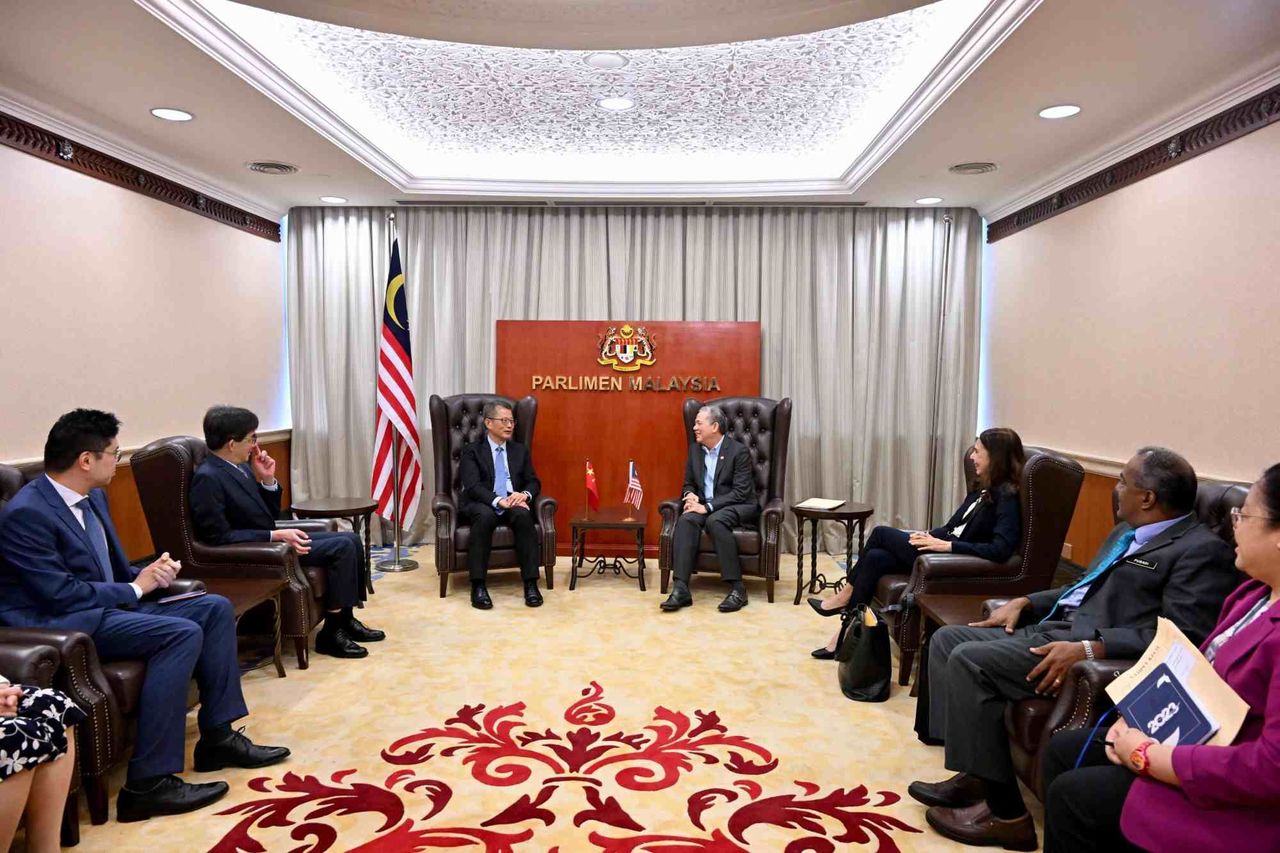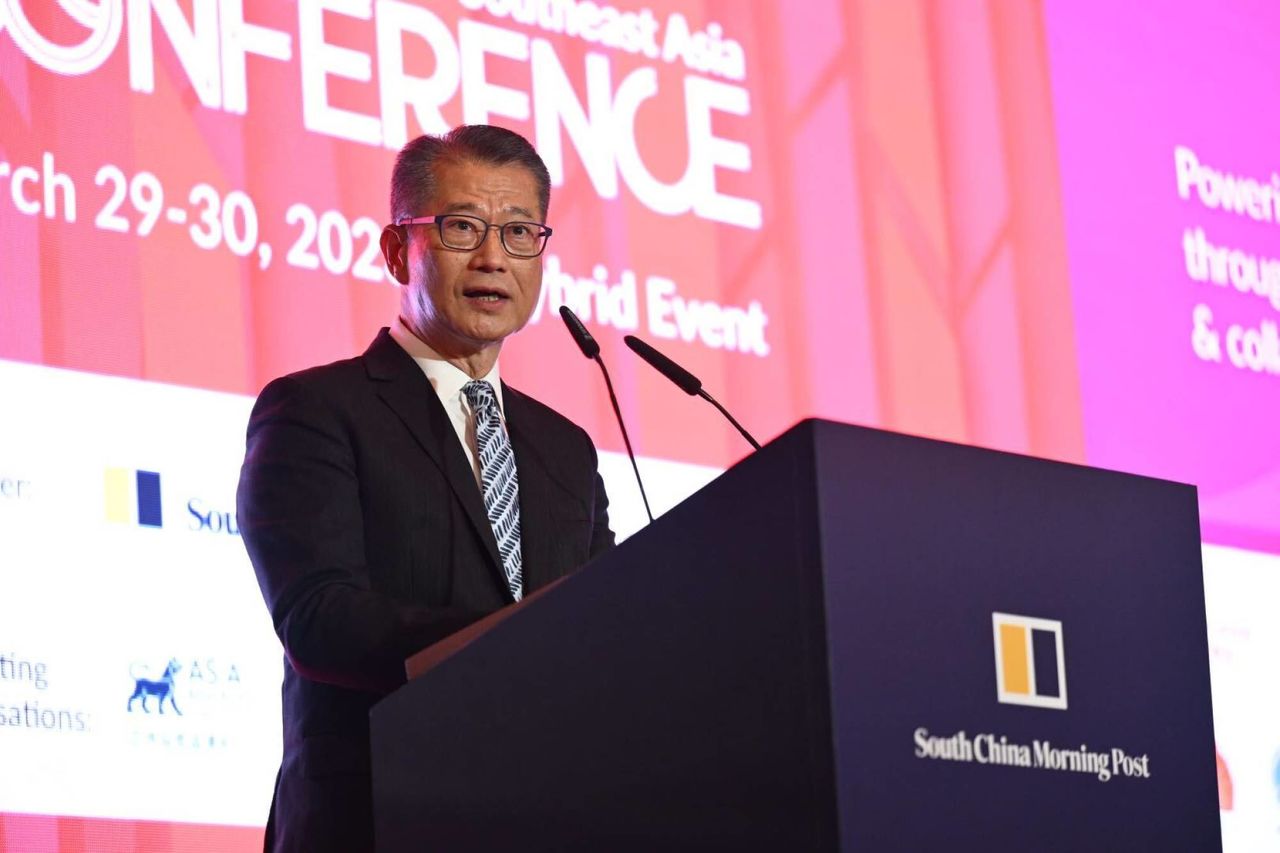Hong Kong News

Top graduates in Singapore, Malaysia eyeing Hong Kong career path: Paul Chan
Hong Kong’s finance minister has said many university students he met during a recent visit to Singapore and Malaysia have shown interest in coming to the city to develop their careers.
Paul Chan Mo-po on Sunday also hailed Hong Kong as “the best platform” for various countries in the region to build closer cooperation, which could in turn grow the economic pie.
Chan was in Malaysia and Singapore for a five-day visit last week to forge closer finance and commercial ties between Hong Kong and the two Southeast Asian countries.
 Finance chief Paul Chan (centre left) meets deputy prime minister and minister for plantation and commodities Fadillah Yusof.
Finance chief Paul Chan (centre left) meets deputy prime minister and minister for plantation and commodities Fadillah Yusof.
During his stay in the two nations, the financial secretary also visited the University of Malaya and National University of Singapore to meet local students.
In his weekly blog post on Sunday, Chan noted that “closer mutual cooperation to enhance regional development was a concern of students”.
“[The students] also showed interest in the talent schemes offered by Hong Kong and the Greater Bay Area region, especially the Top Talent Pass scheme introduced [by Hong Kong] a couple of months ago,” Chan wrote.
The scheme is open to people who have earned no less than HK$2.5 million (US$318,460) over the previous year and graduates from the world’s top 100 universities who have been employed for three of the last five years.
Chan noted that graduates of the two leading universities he had met on his trip were eligible to come to Hong Kong even before they could secure a job under the scheme.
“During the discussions, I can feel that the new policy has made them consider more actively coming to Hong Kong to develop their careers,” Chan said.
During his stay in Malaysia, Chan also called on deputy prime minister and minister for plantation and commodities Fadillah Yusof, as well as deputy minister of international trade and industry Liew Chin Tong.
Chan said he also met some IT, biomedical, and AI enterprise representatives in Malaysia and they had shown interest in the city’s policies to encourage development of innovation and technology, “especially in entering the Greater Bay Area market through Hong Kong”.
“The development potential of the future of the entire Asia region is unlimited. Countries in the region are hoping to push for economic diversification and high value-added development,” Chan wrote on his blog, arguing “seeking regional cooperation to boost development has become a major theme of the entire region”.
“With its unique advantages, Hong Kong is no doubt the best platform that can help Asia speed up its development,” he added.
Chan said the global economic focus was shifting from the West to the East, and healthy competition between mainland China and developing Asian economies could help strengthen the growth of the entire region.
“Some people may be concerned about the negative effects of more stringent competition among places. But economic growth can make the pie bigger,” he said, referring to the theory that free market economics grows every slice of an economic pie, thus raising the standard of living for all participants.
 Chan speaks at the Post’s “China Conference: Southeast Asia 2023” in Singapore last month.
Chan speaks at the Post’s “China Conference: Southeast Asia 2023” in Singapore last month.
Chan also attended the Post’s “China Conference: Southeast Asia 2023” during his visit to Singapore.
In a keynote speech, he made a strong pitch for the city’s status as not just an international finance hub for mainland companies, but also among overseas firms in emerging sectors within the so-called new economy.
While it was important for Hong Kong to continue to serve as the mainland’s international financial centre, it needed to “embrace and facilitate” the movement of global firms to the city too, Chan said in his address.
He also stressed that Hong Kong could become a regional hub for green technology and finance.
Chan met Singapore’s deputy prime minister and minister for finance Lawrence Wong as well as business leaders in the city state.











